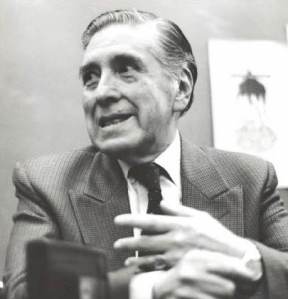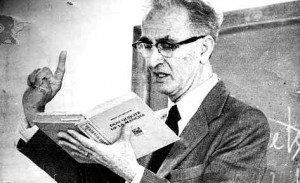María Inés Flores
 Since July 27th, I have watched as much television as I can. I normally don’t watch a lot of tv, but this phenomena occurs every four years: during the summer Olympic Games.
Since July 27th, I have watched as much television as I can. I normally don’t watch a lot of tv, but this phenomena occurs every four years: during the summer Olympic Games.
If you are a college professor, researcher, or staff member, perhaps you have not followed the Olympics news closely nor made it a priority to watch Michael Phelps, Gabby Douglas, Usain Bolt, and other world-class athletes perform. The other Olympic athletes – the ones who perform well but do not contend medals – have probably not grabbed much of your time at all.
But don’t worry, this is not meant to be an accusation of any kind. To most people, it makes sense that many academics limit the amount of time they spend watching Olympic sports, since they have a busy schedule and derive no concrete takeaways to enrich their work. True? False! Watching and discussing the Olympic Games can be a wonderful learning tool, applicable to many subjects and in many different ways.
Let us consider Francisco Marroquín University in Guatemala City, whose mission is the teaching and spreading of the ethical, legal, and economic principles of a society of free and responsible people. How are the Olympic Games relevant to this important mission? A good example lies in how performance is evaluated and rewarded in non-racing and other sports where the results are not obvious or measured by technology.
How do you we know whether Phelps or Le Clos won the men’s 200m butterfly? That’s easy: there’s an electronic scoreboard, which is connected to highly sensitive touch pads, which tells us. And how do we know who won the men’s high jump? Simple: Ivan Ukhov jumped 2.38 meters, which was 5 centimeters more than the closest competitor. There are no opinions, there’s no confusion or controversy. But how do we know whether the best female gymnast in the world is American Gabby Douglas, or the Russian Victoria Komova, whose beautiful and difficult floor exercise routine was expected by many to earn the 15.40 score she needed to surpass Douglas? Even for the few of us who can identify slight performance mistakes, Komova’s floor routine was nearly perfect, her score was too low. As good as Douglas is, Komova’s performance was superior on that event, that particular day, therefore she should have won the All-Around gold medal.
But rules mandate that the scores be awarded by the people who have chosen to be the judges. These judges, in turn, spend years studying the Gymnastics Code of Points and building their careers, often starting at beginner level competitions and escalating until they reach Olympic level judging. Finally, the rules delineate the amount of bonus points awarded for each skill based on its level of difficulty, as well as the points to be deducted for each type of mistake. So theoretically, at least, there shouldn’t be confusion or controversy here, either, but since people are deciding which athletes stand on the podium instead of the height of a bar or an electronic scoreboard, reality is, of course, a bit different. Judges are biased, have personal and political interests, and can err. On that day, many people felt that the rightful All-Around champion was Komova, but it was not our job to decide.
In sports like gymnastics and diving, are the scores always fair? Probably not, but there is a set of regulations in place, and these ought to be followed. There is a system whereby some people make (and change) rules, other people interpret rules, and others enforce rules. This is how a law professor introduces a lecture to his students, how it happens every day in court, and how it happens or at least should happen, at the Games in London right now.
In gymnastics competition, as in life, we may often root for the underdog, whether it is the first Chilean gymnast to ever qualify for event finals, or the employee charged with falsifying information and fired just two years away from retirement. For many reasons, it would be inspiring and wonderful for the Chilean gymnast to receive a medal for his great performance, but by the judges’ evaluation, he did not earn one of the top three spots. Therefor, there was no medal for him. Law professors would state that the rule of law applies. Likewise, we may sympathize with the 54-year-old supervisor who inadvertently did not report information on the manufacturing plant’s problems and lost his job, with no severance package and a sickly wife, but since he was contractually obligated to disclose all relevant information to management and failed to do so, immediate termination was the outcome. Once again, the rule of law applies … in the Olympic Games, in labor law, in life.
Another important takeaway from the Olympic Games is the International Olympic Committee’s sanction of the athletes who lost on purpose. Chinese, South Korean, and Indonesian badminton doubles players were losing on purpose, in order to compete with the desired team in the following match. Despite being booed by the audience and receiving a warning from the referee, the players continued with this behavior, until they were disqualified. [i]Olympic athletes who are representing their countries are obligated to put in their best effort… but is it a legal obligation as well as a moral one? We do know that athletes are sworn in by their home country’s Olympic Committee before departing for the Games, and everyone agrees that at minimum, this was poor sportsmanship, conduct unbecoming of the Olympic values. The IOC has mentioned the possibility of reimbursing the spectators who paid good money to see real badminton matches. In addition, both the Badminton World Federation and the IOC have committed to investigating the matter and taking further action, since they have declared that this is a very serious matter. I’m sure that my friends in academia will agree that this case, and many others throughout the Olympic Games, can help to teach the ethical and legal principles of a society of free and responsible people.
My favorite 2012 Olympics moments so far have been Kirani James trading name tags with legendary Oscar Pistorious, Aly Reisman putting her gold medal around her coach’s neck in symbol of their victory, Félix Sanchez sobbing on the podium as the national anthem of Dominican Republic played, and the most special of all, Eric Barrondo’s second place finish in the men’s 20 km Walk, which made him the first Guatemalan athlete in history to win an Olympic medal.
I don’t need to justify watching the Olympic Games… I simply love doing it! But medals and tears are not the only takeaways. I invite the super smart people in the academic world to consider watching, too: they could take away important lessons as well as contribute to passionate classroom discussion and learning!
Guatemala City, August 7th, 2012
[i] http://aol.sportingnews.com/olympics/story/2012-08-01/olympics-2012-badminton-players-lose-on-purpose-throw-the-game-kicked-out




